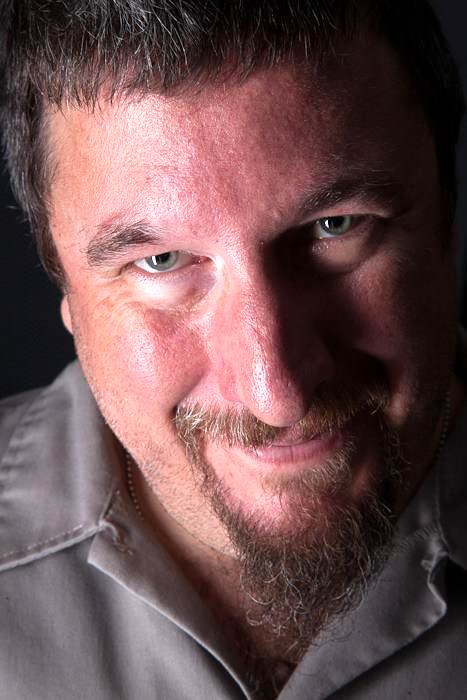|
DEMOS What To Know BEFORE Recording Your Voice-Over Demos (PS: Selfies Don't Cut It) May 31, 2018  By Rob Marley By Rob MarleyVoice Actor In the same way a headshot works for an actor or model, your voice-over demo is your calling card: it's a thumbnail outline of who you are as a voice-over artist. In the money-making real world of professional voice-over, your demo has to be as professional as possible. It's critical to your success in this business. A lot of books and websites (and coaches, and pros) will tell you that you should NEVER make your demo yourself. And ya know what? They're absolutely right! To a person with a trained ear - like a casting director or a talent agent - what you make on your own will sound home-made. And if you later decide to replace the selfie demo with one done professionally, the casting director you send the new demo to may remember your previous one, and write you off as an amateur and toss the new demo in the trash. DEMO CONSIDERATIONS There are a lot of things to think about as you prepare to work with a pro to create and produce your demos. For instance: 1. Quick Demonstration Your demo should consist of several examples of your particular voice-over style in whatever format you're aiming for, cut quickly together. Listen to the demos of working professionals (in other words, people who are getting work). Hear how quickly they're cut together. Speed is important. Edit your demo to be fast paced. You don't want to play an entire 30-second commercial - just a sentence from one, then cut to the next one, etc. 2. Background Music Background music should match the style of the promo and be out of the way, definitely not interfering with the voice. You are promoting your voice, not the music. There are a variety of places to locate production music. A Google search for "free production music" will turn up some good results. 3. Review Scripts Read some samples of actual commercials. Edge Studio, for instance, offers a large assortment of scripts for review. Registration is free and once you log in, you can pick the category you like and grab as many as you want. 4. Don't Mix Formats Do a different demo for each VO genre you want to specialize in. For instance, if you're mostly interested in commercial work, your demo should be all commercial style recordings. If you're looking to get into voice anime, cartoons and video games - then your demo should be all about that. For example, I have a separate demo for commercial work, one for corporate narration and E-Learning, one for radio station IDs and DJ intro's, and one for phone messaging/ Interactive Voice Response (IVR) systems. This way, if I am auditioning for a corporate narration job, my potential client doesn't have to hear a bunch of DJ intros or hear me shilling for Ford trucks. 5. Stop At 60 Your demo should be 60 seconds long. That's it. A narration or character demo might go a little longer, but not by much. You have an incredibly small amount of time to convince a casting director or potential client that you're the right voice for the job. Assume that
for any particular job posting, the client may have to listen to
hundreds of demos. They aren't going to be spending a lot of time on
each voice. They're going to listen to a demo and decide within 5
seconds if that is the right voice they pictured for their job. With
that thought in mind, you need to grab the listener's attention right
from the beginning - put your absolute best stuff in the very beginning
of your demo, followed by your second best stuff, etc. Don't
record anything you can't pull off completely. A demo should represent
the sum of your voice-over skills. Now is not the time to try out your
newly learned European or New York accent. If it doesn't sound
convincing, it's going to come across as amateur. And a client who is
looking to spend hundreds of thousands of dollars (or more) on a
national commercial will want a professional. Not an amateur. 6. For The Love Of God: STOP TRYING TO SOUND LIKE DON LAFONTAINE! If
you've got that deep, basso profundo announcer voice: congratulations.
Now, what else can you do with it? A casting director can't swing a
dead cat without hitting five people who are trying to artificially sound
like "The Don." This style of voiceover is over-used and cliche. Instead, show your versatility. This will take you further than doing
what you THINK they want to hear. 7. Always Leave 'Em Wanting A Little More In the chance that someone listens
to your demo all the way through, you don't want to bore them. Keep 'em
interested and entice them so that if they want to hear more, they can go
to your website. A
trick to making your demo sound a little more "pro" is to have your
voice processed differently on each clip. Things like compression,
expansion and EQ should be different. You want it to sound like each
clip was recorded at a different time, in a different studio, with a
different mic and mastered by a different engineer. If they all have
the same EQ/ compression settings, it's a dead giveaway to someone who
knows what they're listening for that the demo was home made. 8. Beware Of Demo Mills In
every business, every industry, every niche... if there is money to be
made, there is someone out there figuring out ways to take advantage of
that. The voice-over business is no exception to this, and a perfect
example is the so-called "demo mill." A
demo mill is basically a slick operation that promises you that they
will produce for you a top notch, professional demo. They will tell you
exactly what you want to hear.
Don't be fooled. Companies
like this will do nothing but take your money and leave you with a demo
that wont convince anyone who knows what to listen for. They are a
waste of time and money that could be better spent on a proven voice
coach. How to avoid a demo mill: Ask
around. Talk to professionals. Talk to voice artists who are working
(not just hoping for work). Ask them who they used. Ask about costs.
Shop around. Take notes. Don't
just jump at some website that promises the world and can't deliver on
it. Demo mills take your money and crank out worthless junk. Consider yourself warned. DON'T JUMP TOO SOON The
amount of time and effort you put into your demo is critical to your
future success. The better you can make it sound, the better off you
will be. But don't get your demo produced too early. If
you don't first get the training to learn the voice-over skills, you're
just polishing a turd. No matter how good you think you sound, an expert
will see through the charade. Get professional training and learn the
skills before you get your demo professionally produced. This is what
separates an amateur, hobby-level voice-over artist from a true
professional. ------------------
ABOUT ROB A Los Angeles native, Rob Marley is an accomplished voice talent, producer and writer, now living in the hill country of Austin TX. Web: www.MarleyAudio.com SEE MORE HELPFUL VOICE OVER MARKETING ARTICLES HERE |
Tell Us What YOU Think!
Please Note: Since we check for spam, there will be a slight delay in the actual posting of your comment.
Comments (1)
Joyce Castellanos
6/11/2018 at 4:28 PM
Wonderful information. It is important to be prepared and confident in the material you record. It is important to show your take on the story and I feel that writing the scripts is better than using existing scripts. I do agree that changing up the mic is a good idea, but using different mixers is not necessary...a good professional mixer should be able to create subtle nuance for different spots.










click for new article alerts